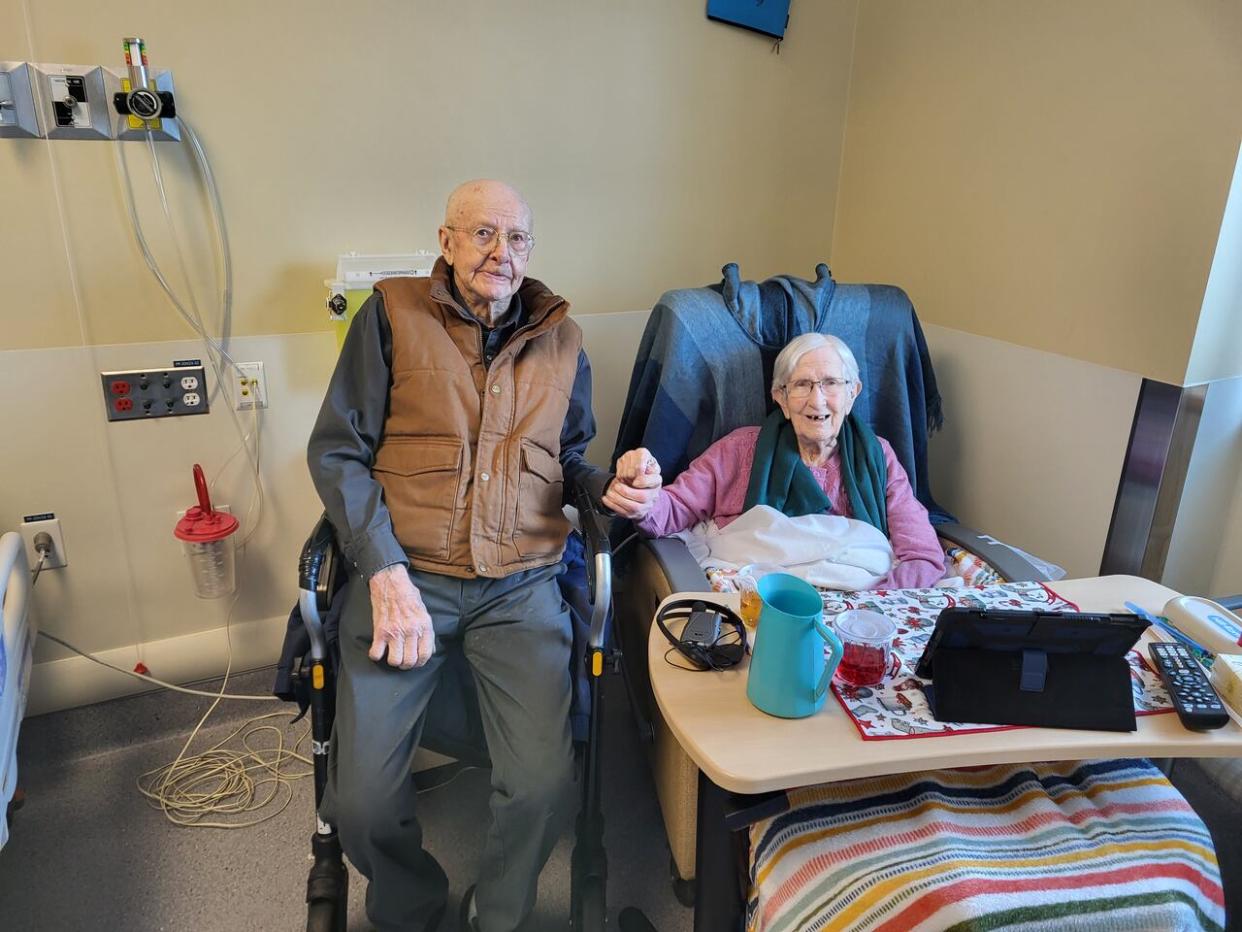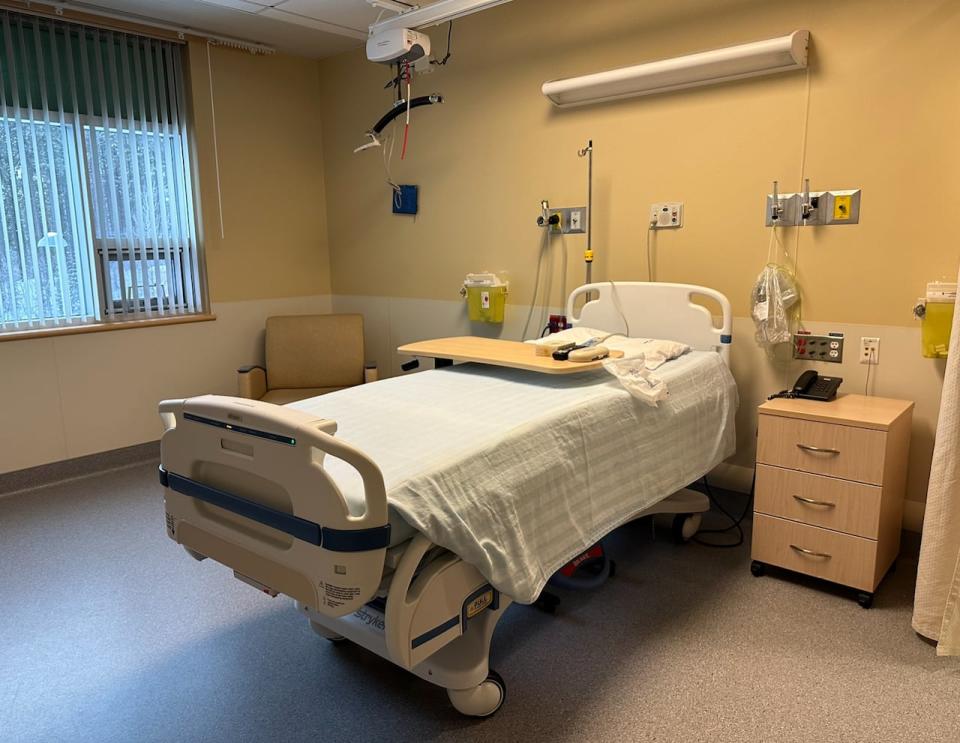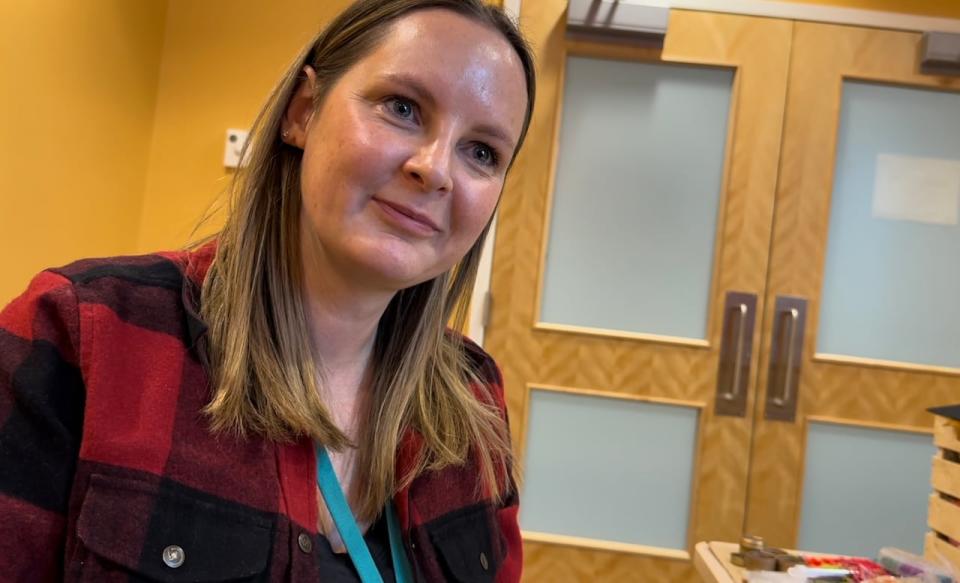Son of Yukon couple hopeful his mom can return to her husband, and her community

Cliff Kostiuck and his family are hopeful.
Hopeful that the Yukon government's recent announcement that it would be moving forward with two long-term care beds at the Watson Lake hospital, means his mother Evelyn has a chance to receive the care she needs in her community.
Evelyn, 95, has been living at a long-term care residence in Whitehorse since January. Her husband Lloyd, 99, is unable to live with her in Whitehorse, so he must travel five hours from Watson Lake, when he can, just to visit her.
Kostiuck said it's been tough to see his parents apart after being together for so long — 75 years in fact.
"Your whole life you're together," Kostiuck said. "And all of a sudden its just like one dies ... but they're not dead. They're still alive but they can't be in the same community."
Kostiuck said he's glad the government has had a change of heart when it comes to the beds.

A bed at the Watson Lake hospital. The room was refurbished to accommodate patients requiring long-term care before the territorial government put the plan on pause. (Cheryl Kawaja/CBC)
"It's great to hear that, yes they're going to activate the rooms whenever that might be," he said. "If you stop to look at this more and more people are reaching an age where they need assistance."
Kostiuck said best case scenario for him, his parents will be reunited again in Watson Lake. He said if that doesn't happen, then at least the beds will be used by another family that wants to remain in the community.
"Realistically they know that they probably aren't first on the list because there's probably people still in Watson Lake that need it," Kostiuck said.
Training locals
Dr. Lindsey Campbell is the chief of staff at the Watson Lake hospital.
She said she hadn't heard about the government's plan to move ahead with the two long-term care beds until CBC News contacted her for an interview about it.
Despite that, Campbell said that there's been a lot of work done to get the beds and rooms ready but said there's still a lot of things that need to be worked out.
"We're pivoting from before. Because of the human health resource challenges, we weren't able to hire LPN's (Licensed Practical Nurses) necessarily, so we have to work on staffing which is going to be the key consideration in how to do this."

Dr. Lindsey Campbell is physician in Watson Lake, Yukon. (Cheryl Kawaja/CBC)
One idea being discussed is to potentially train local people who live in Watson Lake already, rather than bringing people in from Whitehorse, or elsewhere.
No timeline has been set for when the beds will be offered to the public but Campbell said she understands how important it is to get something in place.
"We have a lot of people who choosing not to be listed for long term care because they don't want to go to Whitehorse," she said.
"So we have a lot of people in the community who live at risk, and unfortunately die at risk while they're waiting for this. And this is the reason why I'm very excited to have the opportunity to have these beds."

